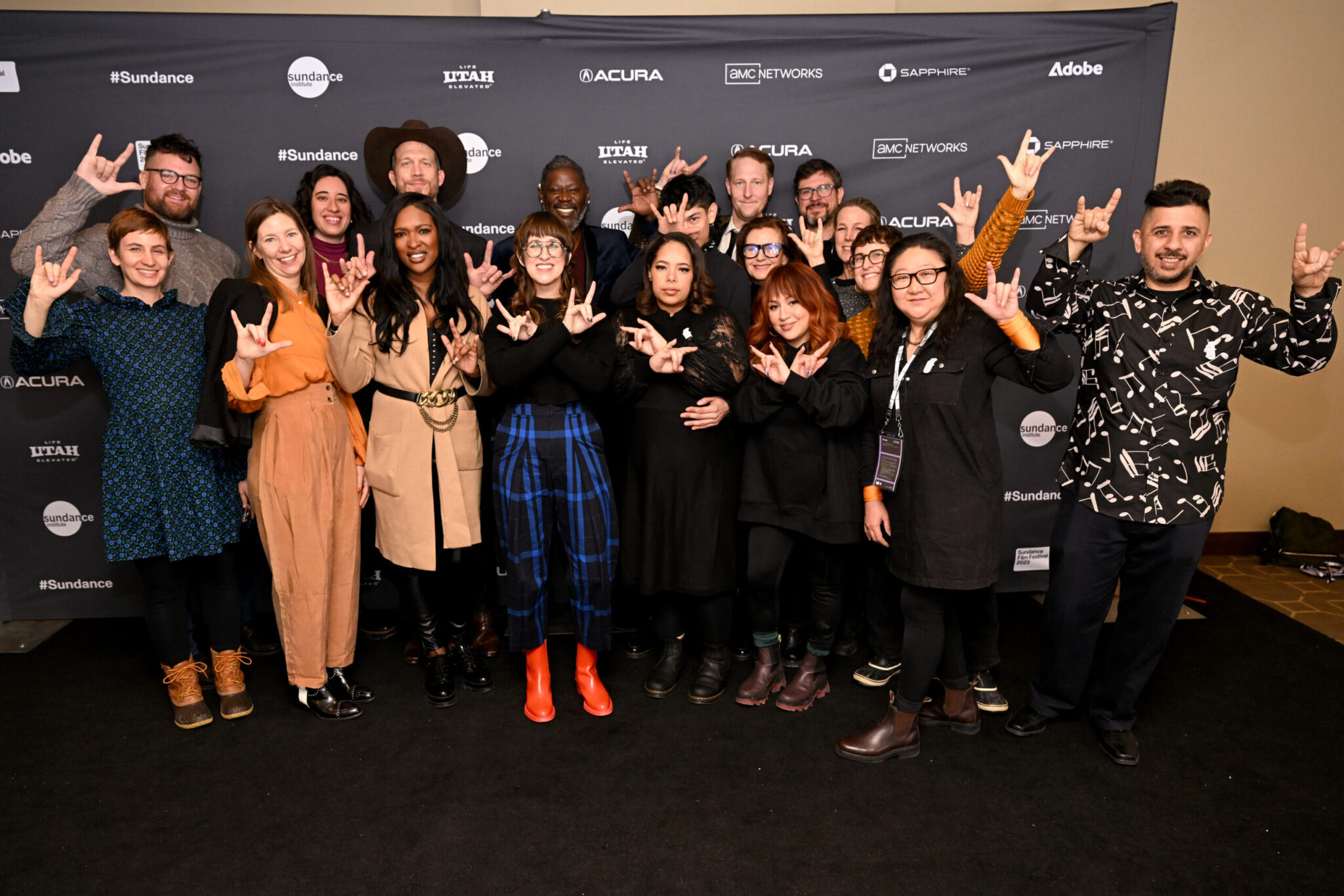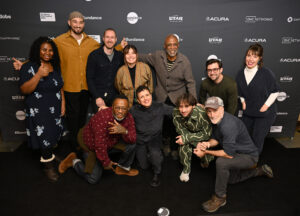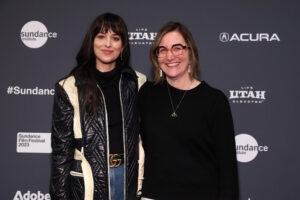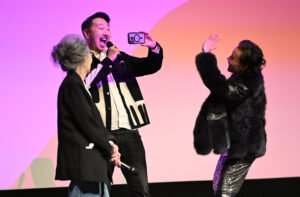PARK CITY, UTAH – JANUARY 22: The cast and crew of “The Tuba Thieves” pose during the 2023 Sundance Film Festival “The Tuba Thieves” premiere at Prospector Square Theatre on January 22, 2023 in Park City, Utah. (Photo by Jim Bennett/Getty Images)
By Lucy Spicer
Between 2011 and 2013, a string of peculiar robberies left high school band classes in Southern California with fewer tubas than there were students to play them. Tubas are expensive instruments, and cash-strapped schools felt the loss distinctly. Though the title may seem to indicate otherwise, The Tuba Thieves, which premiered at Prospector Square Theatre on January 22, doesn’t so much focus on tuba theft as it does on sound and the absence thereof.
In her feature-length debut, d/Deaf writer-director Alison O’Daniel has made a film for all listeners: Deaf, hearing, and everyone in between. This creative take on the documentary genre features two individuals playing fictionalized versions of themselves: Nyke, a Deaf woman who works at a recording studio, and Geovanny, a drum major in a band that was hit by tuba thieves. Set during the period these robberies took place, the film documents certain moments in Nyke’s and Geovanny’s lives in Los Angeles.
These moments are interspersed with scenes from decades past that together ask us to examine what it means to listen. Does listening to music require the ability to hear? How often does a hearing person listen to someone talk without actually hearing what they’re saying?
Reading about the tuba thefts was the genesis of the project for O’Daniel, but inspiration came from multiple sources. “I started working with these composers. I asked them to make me these soundtracks before the film was made, so they didn’t have anything to respond to. I gave them a bunch of random associations and references,” says O’Daniel at the post-premiere Q&A. One of these references was a photo of Maverick Concert Hall in Woodstock, New York, which happens to be where 4’33” — an experimental composition by John Cage in which the performers do not play their instruments during all three movements — premiered in 1952.
“This mythology has followed 4’33”,” explains O’Daniel. “The mythology is that it was a music piece about silence. And at that moment, I realized the mythology around deafness is also that it’s about silence. And it’s just not. That’s not our experience with deafness. And so from that moment on, I just was on a roll, and I really was honoring listening, honoring this information coming to me and what it means to kind of sit back and let it come and speak to me.”
O’Daniel employs a spectrum of communication in The Tuba Thieves. The combination of sounds, captions, and sign language fully engages the viewer, which feels significant in an age where glancing away from a film screen to look at another, smaller screen is a common occurrence. The sounds that aren’t present in the film are just as important as the sounds that are, and the ebb and flow between the two creates a unique cinematic experience.
Russell Harvard — who plays Nature Boy, Nyke’s partner, in the film — had some powerful parting words for filmmakers at the post-premiere discussion: “Don’t listen with your ears, but listen with your hearts. And stop with all of the resistance. There’s so much resistance. Just listen with your hearts. One person had shared with me that filmmakers tend to feel that subtitles and captioning ruins the artistry of the film, and I would have to say that’s fucking ridiculous.”










